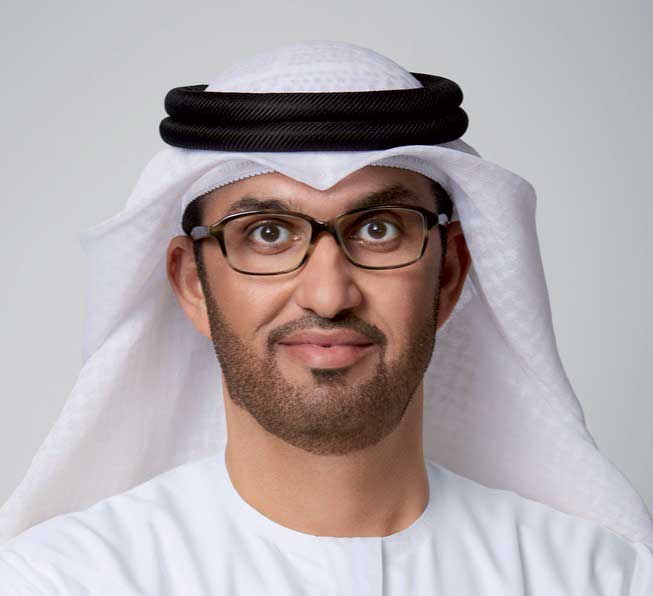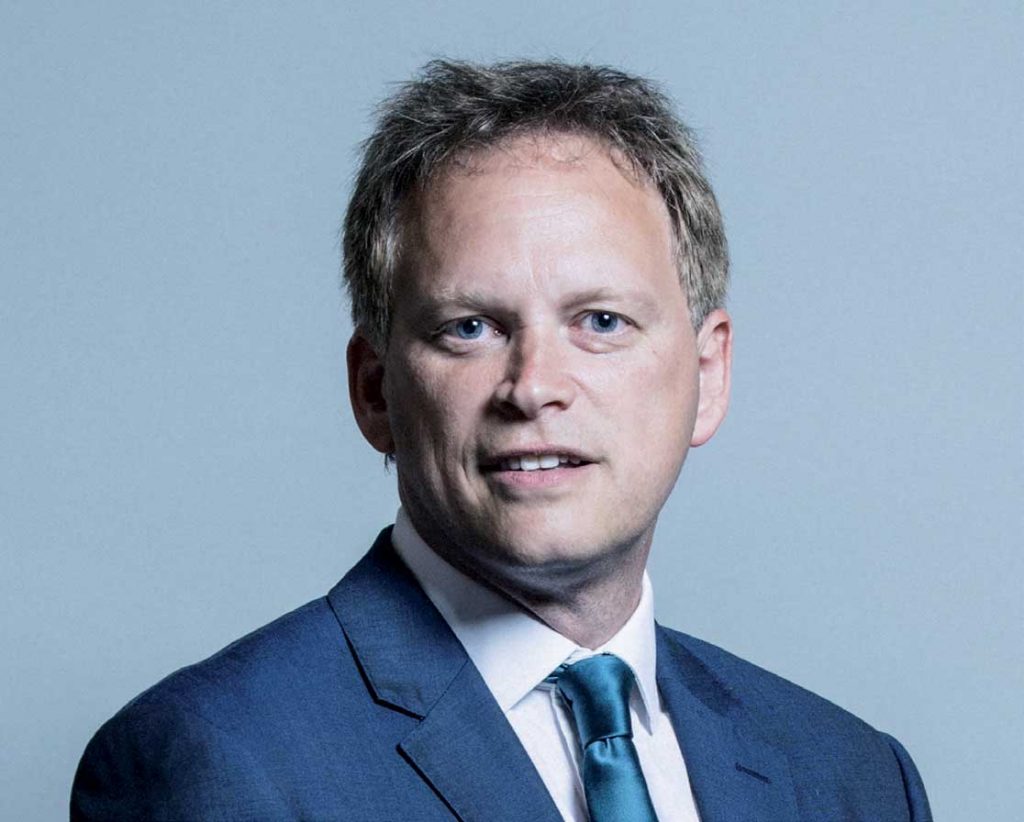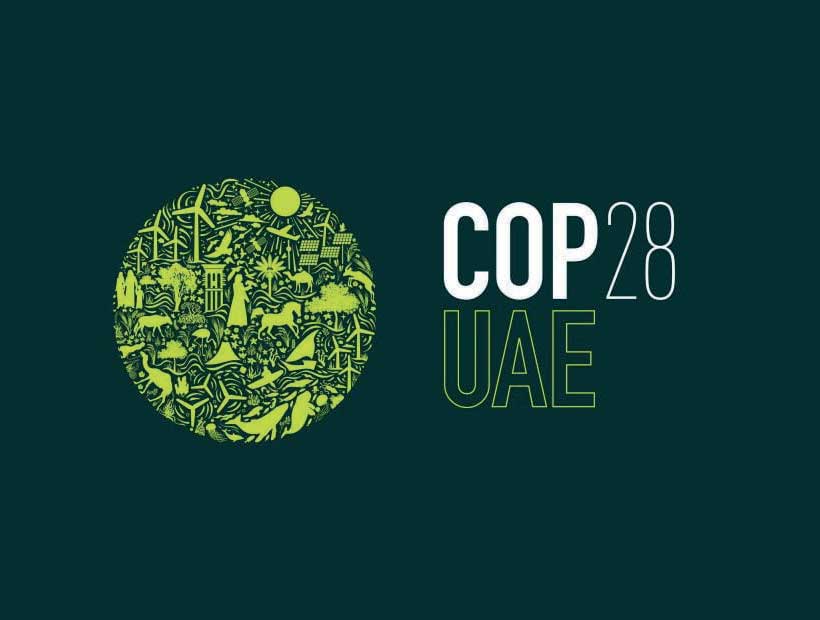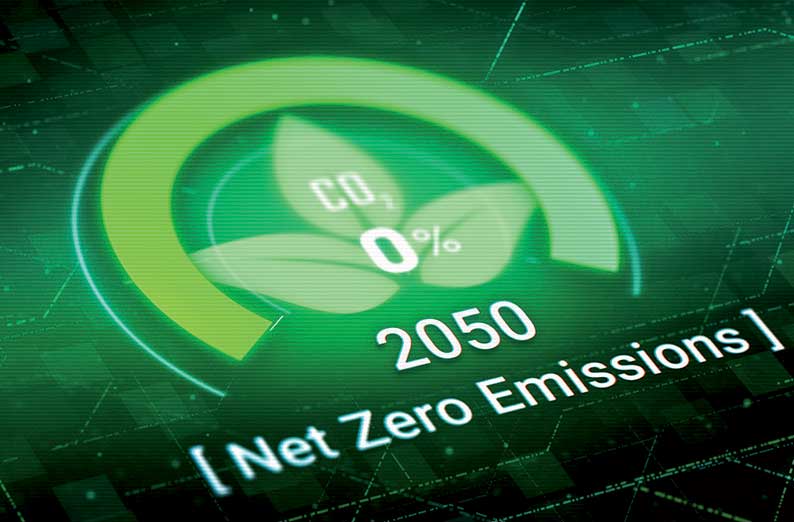Stakeholder & Agenda Update
1. COP28, UAE’s Priorities & Issues
The UAE was the first Middle Eastern country to commit to Net Zero carbon emissions by 2050 which it aims to achieve through decarbonising industries, reducing gas flaring and increasing the speed of energy transition towards more sustainable, greener sources.
Examples include the Barakah Nuclear Energy Plant and the Mohammed bin Rashid Solar Park, all of which are enshrined in the UAE’s 2050 Net Zero plan. The stated intention for COP28 was recently reaffirmed by the UAE President, Sheikh Mohammed bin Zayed Al Nahyan as:
“Building on the outcomes of COP27, the UAE and the UNFCCC will work with parties and partners to accelerate climate action to meet the commitments the world has made.”
This statement will be brought into sharp focus during COP28 because it will present the conclusion of the UN’s Global Stock Take (GST), which provides an indicator on progress towards reducing global warming to 1.5 °C. This isn’t anticipated to be good news, with Al Gore predicting at the recent WEF in Davos that “we are failing badly”.
What is also clear is that the UAE’s hosting of COP has provoked activists to criticise the UN for selling out to (what they see as), big and influential oil companies. Gore went onto describe how there’s a “clear appearance of conflict of interest when the newly appointed head of COP28 also runs one of the world’s top oil companies.”
The announcement appointing Dr. Sultan Al Jaber1 as UAE Climate Change Special Envoy (who is the UAE Minister of Industry and Advanced Technology, CEO of ADNOC and the founding CEO of Masdar Clean Energy Company, amongst numerous other assignments), was one of the most headline grabbing developments during Abu Dhabi Sustainability Week. According to Reuters, this led to “fuelling activists’ worries that big industry is hijacking the global response to environmental crisis.”
Ironic too therefore that another recent UAE COP appointment, the UAE’s UN Climate Change High-Level Champion, Razan Al Mubarak2, is the wife of Badr Jafar3, President of Crescent Petroleum, a huge oil and gas enterprise.
From the UAE’s perspective, it sees its own position as being an important part of the solution and not the problem. It’s content to confront whatever criticism it may have to deal with head on, advocating that its long-standing commitment (spanning two decades) towards investing in renewable and sustainable energy, with examples such as Masdar and initiatives such as Abu Dhabi Sustainability Week, providing substantial credentials for a voice in the clean energy debate, and therefore towards a means of mitigating climate change.
More recently, during India’s Energy Week in February, Dr Sultan Al Jaber reinforced the dilemma developing nations share to balance the need for climate change with their need for economic diversification. In describing the challenge he said:
“How to adopt policies that are pro-growth and pro-climate at the same time. How to provide for a world that will consume 30 per cent more energy by 2050, while protecting our planet. In short, how to hold back emissions, not progress.”

The refence here to “holding back emissions” speaks volumes about the UAE’s intention to focus upon decarbonising strategies.
2. Big Picture; UAE-UK Relations
Notwithstanding the sentiment of certain activists, the UK’s government rightly supports its valuable relationship with the UAE. During a recent visit to Abu Dhabi, Grant Shapps, UK Secretary of State for Business, Energy, and Industrial Strategy, spent time attending events associated with ADSW. In an interview with the UAE newswire WAM, he said:
“The fact that the UAE, as a big energy-producing nation hosting COP 28, gives a very important message to the world. COP 28 comes under my ministerial portfolio in the UK. I will be making sure that the COP conference in the UAE could be successful.”

Subsequently in an interview with influential business news portal AGBI, arranged by THC for the UK trade commissioner for the UAE, Simon Penney, he cited bilateral talks based on substance over speed, with reference to establishing a free trade agreement (FTA) between the two countries and the broader GCC bloc. Apart from any political motivation (from both sides), the fact remains that the UK is committed to protecting its £9.2 Billion4 exports to the UAE.
From a UK perspective, fostering this relationship offers multiple development opportunities. It’s therefore worth underlining the value in building on the relationship with another important gatekeeper, the UAE Ambassador to the UK, HE Mansoor Abulhoul5. He is a key influencer in the UAE-UK Business Council, where EDIT enjoys an active role.
Another hidden dividend in this relationship is the UAE’s UK Embassy’s oversight of their multi-billion pound investments in British technology and clean energy announced in 2021. This, linked with the FTA and COP28, ensure that the UAE is uppermost in the UK government’s investment and trading ambitions.
3. Priorities for the UAE Agenda
Earlier in the year, the COP28 Presidency announced a leadership team to work closely with the UNFCCC and the COP27 organisers (who retain the presidency until November), in setting the agenda for the summit.
Looking at the composition of the COP28 Higher Committee (a list of known members is included in the appendix), it’s clear that the UAE has put together a range of talented Nationals, drawn from a variety of sectors. These include professional career diplomats, such as the Director General of COP28, Majid Al Suwaidi6 (former Ambassador to Spain and Consul General in New York), as well as Shamma bint Suhail Faris Al Mazrui7, Minister of State for Youth Affairs.
Individual members of the Committee all have a role to play in ensuring that COP28 is delivered safely and as effectively as possible. Security too is a major issue, hence the inclusion of the heads of the police and transport authorities. With activists being an established feature of COP, the UAE will want to exercise its own blend of diplomatic discipline with a light touch, countering the stereotypical, dictatorial view often presented by western media.
Key focus areas are likely to include:
- Empowering youth to embrace the challenge of guiding the UAE towards its Net Zero ambitions.
- Showcasing technological innovations that enable the process as well as capturing the attention of young people.
- Presenting its argument for energy transition and means of producing green hydrogen8 as a key to reducing emissions.
- A focus on food and water security will link with the impact regional conflicts have
- had on the acceleration of desertification, both in the Arabian Peninsula and especially in the Sehal9 region of Africa, echoed in the comments below bringing together “global north and south”.
The UAE also accepts its duty to bring to life agreements at COP28 which were based upon previous commitments. As a final word, at the presentation of the new COP28 logo during ADSW, Dr Sultan Al Jaber stated:

“We live in one world, a world where we need to collaborate and co-operate like never before to make the transformational progress needed to reach the Paris Agreement. COP28 will be a COP for action and a COP for all, bringing together the global north and south and leaving no one behind.”
4. UAE’s Vulnerabilities
Globally, the primary sources of greenhouse gas emissions are10 electricity and heat (31%), agriculture (11%), transportation (15%), forestry (6%) and manufacturing (12%). Energy production accounts for 72 per cent of all emissions. In the context of the UAE, areas of vulnerability include:
- Its commitment to underpin its economic diversification ambitions through revenues generated from oil and gas exports.
- The UAE’s tourism industry – Dubai alone has in excess of 750 hotels with over 125,000 hotel rooms and remains one of the key economic drivers.
- Linked to that, its Aviation sector post-pandemic is booming; DXB alone received 23.7m passengers in 202211.
- Infrastructure and construction; whilst the public transport system is evolving in the UAE with examples such as Etihad Rail, emissions caused from the construction sector remain a major concern. So too do those from cars, trucks and buses.
- Shipping and logistics, and other energy intense sectors such as water desalination and aluminium production, such as EGA, are other areas where emissions will draw critical attention. Dubai’s Jebel Ali seaport is one of the largest container terminals in the world, ranking fifth as an international hub12.
Appendix
Summary of Key Emirati Stakeholders for COP28
The UAE has established a comprehensive organising committee for COP28 drawn from multiple government departments and authorities. Members of the Higher Committee include:
- H.E. Dr. Sultan Ahmed Al Jaber, Minister of Industry and Advanced Technology, Vice Chairman COP28 UAE Higher Committee, UAE Special Envoy for Climate Change, President- Designate for COP28 UAE
- H.E. Majid Al Suwaidi, Director General of COP28
- H.E. Razan Al Mubarak, COP28 UAE UN Climate Change High-Level Champion
- H.E. Mohamed Hadi Al Hussaini, Minister of State for Financial Affairs
- H.E. Reem bint Ibrahim Al Hashemy, Minister of State for International Co-operation
- H.E. Suhail bin Mohammed Al Mazrouei, Minister of Energy and Infrastructure
- H.E. Mariam bint Mohammed Almheiri, Minister of Climate Change and the Environment
- H.E. Dr. Thani bin Ahmed Al Zeyoudi, Minister of State for Foreign Trade
- H.E. Shamma bint Suhail Faris Al Mazrui, Minister of State for Youth Affairs, COP28 UAE Youth Climate Champion
- H.E. Muhammad Abdullah Al Junaibi, Chairman of the Federal Authority for Protocols and Strategic Narratives
- Lieutenant-General Abdullah Khalifa Al Marri, Commander-in-Chief of Dubai Police
- Lieutenant-General Talal Humaid Belhoul Al Falasi, Director-General of State Security Department at Dubai Police
- Staff Major General Pilot Faris Khalaf Al Mazrouei, Commander-in-Chief of the Abu Dhabi Police
- H.E. Mattar Mohammed Al Tayer, Director-General, Chairman of the Board of Executive Directors of the Roads and Transport Authority (RTA)
- H.E. Rashid Saeed Al Ameri, Under-Secretary of the Ministry of Presidential Court for Government Coordination Sector
- Major General Khalifa Hareb Al Khaili, Under-Secretary of the Ministry of Interior
- H.E. Helal Saeed Almarri, Director-General of Dubai’s Department of Economy and Tourism
- H.E. Saif Saeed Ghobash, Secretary-General of Abu Dhabi Executive Council
- H.E. Dr. Jamal Mohammed Al Hosani, Supreme Council for National Security
1Dr Sultan Al Jaber’s profile is here
2Razan Al Mubarak profile here
3Crescent Petroleum and profile of Badr Jafar
4Source UK DIT
5Mansoor Abulhoul profile:here
6Majid Al Suwaidi profile here
77 Shamma Al Mazrui profile here
8UAE aims to be a top ten hydrogen producer, reported by the National
9UN news update on the threat posed by desertification 23 Jan 23
10Source: OWD Emissions by sector data
11Source: Dubai Media Office
12Jebel Ali fifth largest international hub according to Dubai Media Office reports

Sit amet lorem ipsum dolor sit amet orem psum dolor sit amet consectetur adipisic elit sed do eiusmod tempor incididuntut labore et dolore magna aliqua utae enim ad minim veniam.
Sit amet lorem ipsum dolor sit amet orem psum dolor sit amet consectetur adipisic elit sed do eiusmod tempor incididuntut labore et dolore magna.
Sit amet lorem ipsum dolor sit amet orem psum dolor sit amet consectetur adipisic elit sed do eiusmod tempor incididuntut labore et dolore magna aliqua utae enim ad minim veniam.